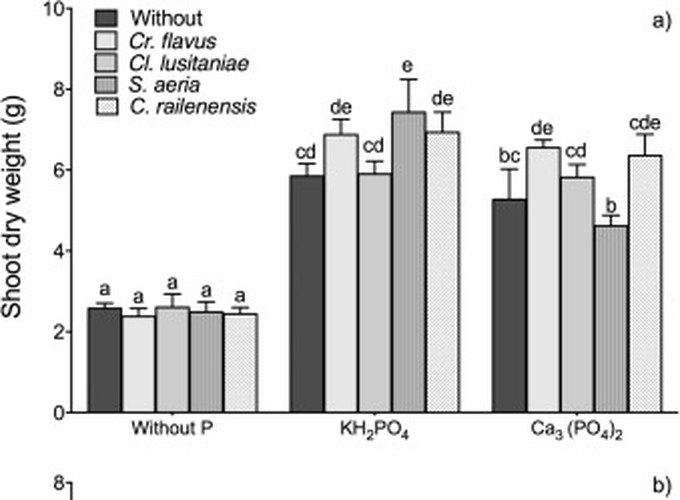

Yeasts are common soil inhabitants, but information about their ecology is limited. Here we examined the abundance of rhizosphere yeasts in six conventional maize agroecosystems in two different geographic areas in Mexico differing in soil characteristics and agricultural practices. In order to examine the plant growth promotion potential of maize rhizosphere yeasts a collection of yeast species was obtained, which were identified taxonomically in terms of sequencing of the D1D2 domain. Main results showed that yeasts were present in all maize fields during the complete growing cycle, though highest during flowering. The abundance of rhizosphere yeasts responded negatively to soil pH and amount of Mg. The maize rhizosphere yeast collection obtained included eight species from six genera with the Ascomycota species Meyerozyma guillermondii and Candida railenensis as the most frequent. Four out of the eight yeast species solubilised Ca3(PO4)2, whereas none of the yeasts solubilised FePO4. Maize plant growth was promoted after inoculation with Cryptococcus flavus and Solicoccozyma aeria in terms of shoot dry weight and with C. railenensis in terms of root dry weight, but only in combination with mineral P fertilisation. In conclusion, rhizosphere yeasts with plant growth promotion traits are common in maize agroecosystems, where soil physico-chemical characteristics and plant growth stage seem to determine their abundance.